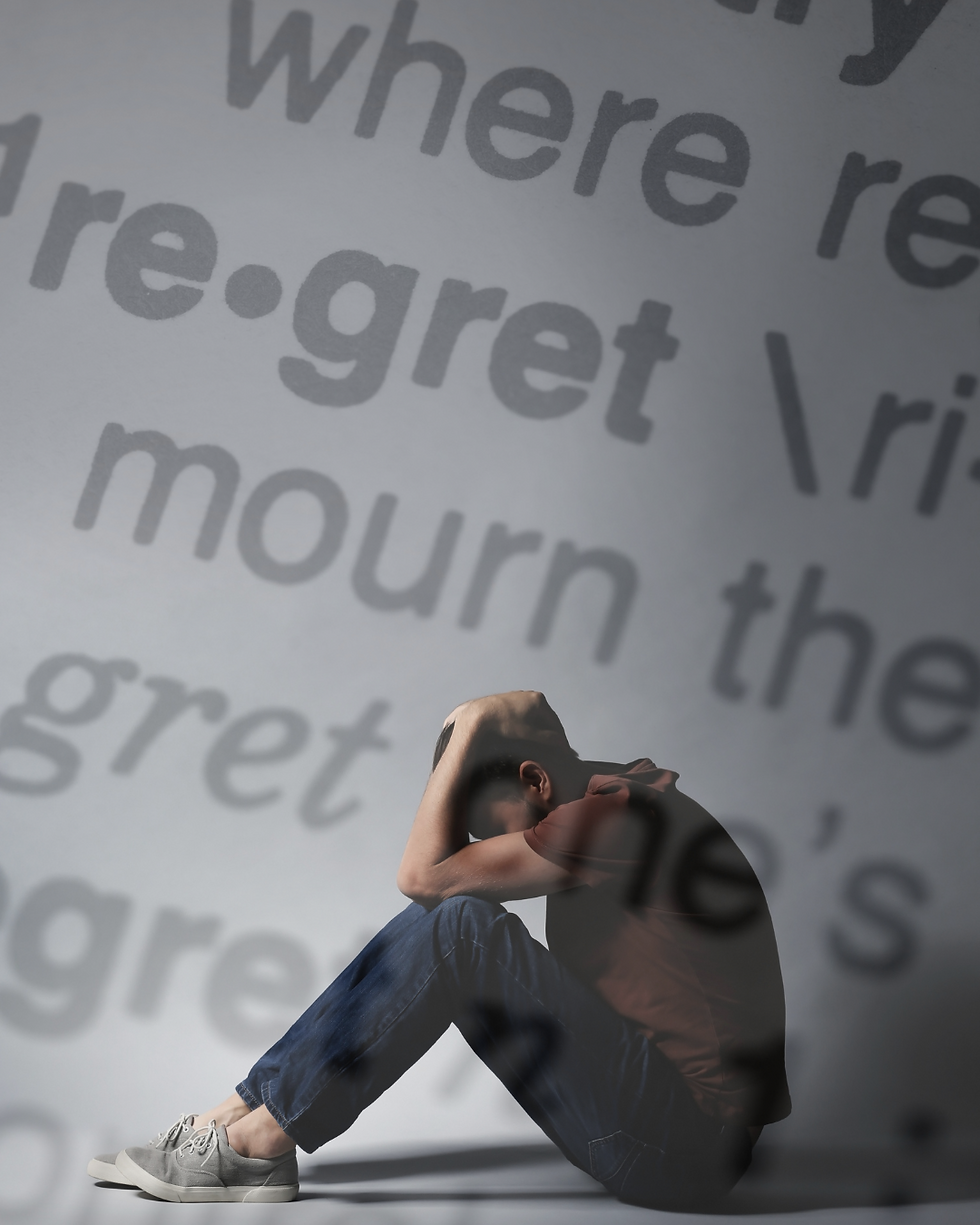Part 1: The Weight of Regret and the Power of Accountability
- Heather Rogers
- Feb 19, 2025
- 4 min read
Updated: Jul 20, 2025

There are moments in life where we make choices that not only affect us but ripple out, touching many lives in ways we cannot undo. These decisions whether political, personal, or professional, can leave us with a deep sense of regret, especially when we realize the far-reaching consequences of our actions. Regretting things we can’t change is one of the hardest emotional experiences. It’s especially difficult when those choices have caused harm to others or contributed to injustice.
One such example is voting in ways that goes against the rights, well-being, or dignity of certain groups of people. Whether it’s voting against equal rights, voting in favor of policies that harm marginalized communities, or supporting actions that undermine social justice, these decisions carry significant weight. And when the reality of what we've done becomes clear - when we realize the harm we've caused - regret can be overwhelming.
However, the type of regret I'm referencing isn’t just about feeling bad for ourselves, and it’s not about how we feel now because of the consequences but about what those consequences mean for others - those whose lives have been impacted by our choices. It’s easy to feel sorry for ourselves when we’re confronted with the fallout of our actions, but true accountability requires that we face the truth of what we’ve done; not just how it affects us, but how it affects all the people who were on the receiving end of our decisions.
The True Nature of Accountability: Facing the Consequences
True accountability is not about feeling guilty for the consequences of our actions when they affect our own lives. It’s about confronting the reality of the harm we've done to others, and understanding the broader implications of those choices. Regret that is self-centered - focused only on how we feel about the outcome, rather than the impact on those we hurt - doesn’t lead to true change.
For example, if someone regrets casting a vote that negatively impacted people’s rights, but their regret only stems from the personal discomfort they feel because of the backlash or because they now see how it has hurt their own community, then the regret lacks depth. This type of regret doesn’t fully reckon with the reality of how millions of people have been affected. The regret remains surface—level - concerned with personal feelings of guilt or shame, rather than truly addressing the harm done to others.
In order for regret to lead to genuine transformation, we need to understand why we made the decision in the first place. Accountability means delving deeper into our thought processes, biases, and fears that led to the decision. We must ask ourselves: Why did I vote the way I did? What was motivating that choice? This requires us to confront any internalized prejudices, fear-based thinking, or external pressures that may have influenced our actions.
Sometimes people make decisions that align with their worldview, or their understanding of what’s best, based on limited perspectives or misinformation. Other times, decisions may be made out of fear of losing power, privilege, or status. True accountability is about acknowledging those motivations, understanding how they shaped our choices, and realizing that those choices had real consequences - not just for us, but for entire communities beyond our own associations or demographics.
The Growth that Comes from Confronting Regret
Acknowledging and confronting regret, especially when it involves actions that have harmed others, is not easy. It requires humility, openness, and a willingness to sit with uncomfortable truths, but this is where growth happens. If we simply acknowledge our regret as something that negatively impacts us, our conscience, our reputation, or our comfort, then we miss the opportunity for real change and personal growth. But when we face the broader picture, then we understand the full scope of the harm we’ve caused. We open ourselves up to deep self-reflection and the possibility of genuine growth.
For someone who has cast a vote that harmed others, true accountability might mean:
Acknowledging the harm done: Recognizing that your decision didn’t just affect you - it affected real people. The rights, lives, and well-being of others were altered by your actions, and those consequences are not trivial.
Understanding the motivations behind your actions: Why did you vote that way? What fears, biases, or pressures influenced your decision? Recognizing these underlying factors is key to understanding why you made the choice in the first place.
Making amends: While you can’t change the past, taking action in the present is crucial. This might involve advocating for the rights of those you’ve harmed, using your voice to raise awareness, or working actively to repair the damage done.
Committing to personal growth: True regret leads to a desire for change. It’s about committing to never repeat the same mistakes, learning from the experience, and actively working to make decisions that align with justice, fairness, and compassion going forward.
Amplifying others’ voices: Supporting those affected by your past actions, and using your position to amplify voices that have been silenced, can be a powerful way to turn regret into positive action.
Regret as a Catalyst for Transformation
Regret can serve as a powerful catalyst for change, but only if we allow it to be. If we use regret to examine ourselves deeply and ask the hard questions - Why did I do this? How did I fail? How can I make it right? - we open the door to transformation. But if we allow regret to remain solely about how we feel, then it becomes a barrier, preventing us from truly growing and making amends for the harm we’ve caused.
True transformation comes when we stop seeking validation for our actions and start seeking accountability for the lives we’ve touched, whether through direct or indirect harm. This involves taking responsibility for what we’ve done, not because we’ve been called out, but because we recognize that our actions were not aligned with our higher values and the well-being of others.
In the end, true change requires a shift from regret being about us, to being about the broader impact of our actions for others. It’s not enough to regret something because it’s affecting our own life or comfort; we need to feel the weight of how it’s affected others. And once we do that, we have the power to make real amends, transform our behaviors, and create a future that reflects the lessons we’ve learned.




Comments